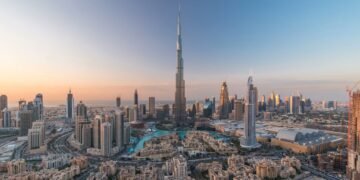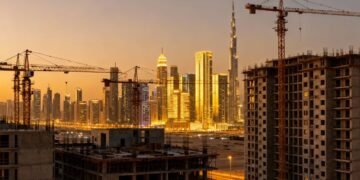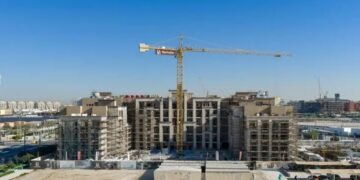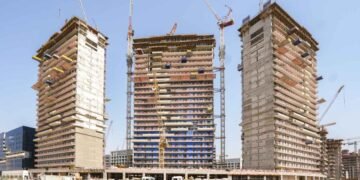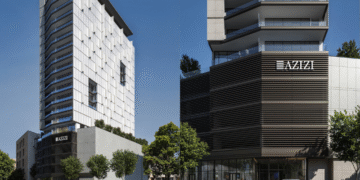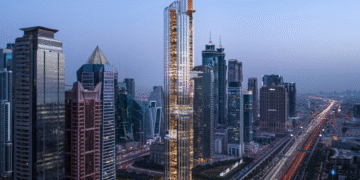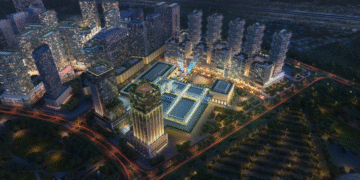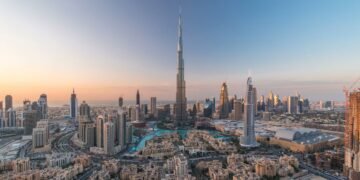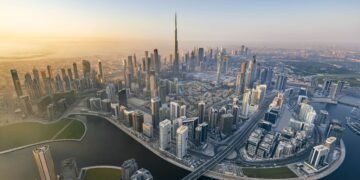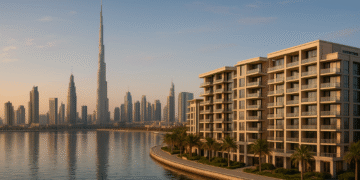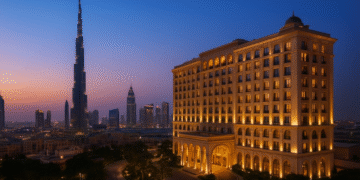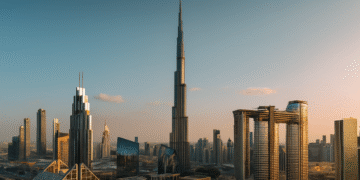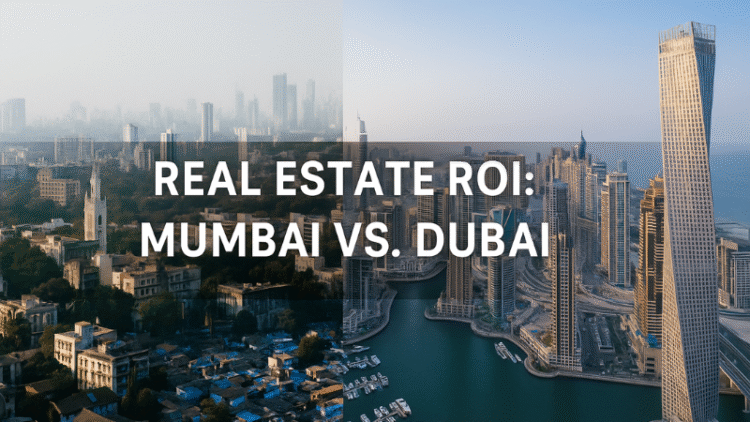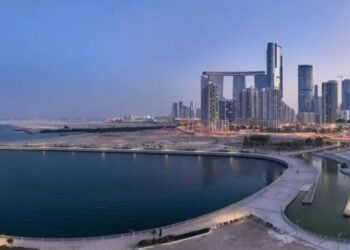Dubai, UAE — August 3, 2025: As Indian investors increasingly look beyond domestic borders for real estate opportunities, Dubai has emerged as a compelling alternative to India’s traditional property strongholds like Mumbai, Delhi-NCR, and Bengaluru. With rental yields, regulatory ease, tax advantages, and a transparent real estate ecosystem, the comparison between India’s metro markets and Dubai is no longer just academic — it’s financial strategy.
A Tale of Two Cities: Capital Appreciation & Rental Returns
In Mumbai, the average rental yield hovers between 2-3%, according to a recent Anarock report. While capital appreciation in prime South Mumbai areas remains steady, it’s often offset by sky-high purchase prices, sluggish infrastructure upgrades, and complex approval systems.
Also read: Dubai’s Commercial Real Estate Soars in H1 2025 Amid Rising Global Confidence
Dubai, on the other hand, offers gross rental yields of 6–8%, with areas like Dubai Marina, JVC, Business Bay, and Dubai South outperforming many global real estate markets. According to the Dubai Land Department (DLD), the emirate recorded AED 431 billion in real estate transactions in H1 2025, a 25% year-on-year increase. In contrast, Mumbai’s real estate transaction volume grew at just 6% during the same period (Maharashtra Department of Registration & Stamps).
Taxation & Investment Incentives: Dubai’s Edge
One of the most prominent advantages Dubai holds over Indian metros is its tax-free property environment. There is no capital gains tax, inheritance tax, or property tax in Dubai — a significant incentive for long-term investors.
In India, the situation is notably different:
- Long-term capital gains (LTCG) on property sales are taxed at 20% post indexation.
- Rental income is taxed per the individual’s slab rate.
- Property tax and stamp duty charges vary between 5–7%, depending on the state.
Additionally, Dubai now offers 10-year Golden Visas and investor-friendly schemes such as 100% foreign ownership in freehold zones, enabling Indian investors to fully own properties without needing a local partner — something still required in parts of India for non-resident investors.
Regulatory Clarity and Developer Accountability
India has seen improvements in transparency after the implementation of the RERA (Real Estate Regulatory Authority) in 2016. However, delays in project deliveries and legal tangles continue to plague many cities. Mumbai alone has over 10,000 delayed or stalled projects, according to CREDAI.
Also read: Why Indian Investors Should Buy Property Through a RERA-Registered Broker: Top Benefits
Dubai’s RERA equivalent — governed under the Dubai Land Department — enforces strict regulations on escrow accounts, project timelines, and developer disclosures. These mechanisms have significantly boosted investor confidence, especially from NRIs.
Moreover, platforms like the Dubai REST App offer full transparency on ownership, project progress, and property registration, minimizing risks.
Entry Points: Affordability and Variety
Indian cities like Mumbai and Delhi are often priced prohibitively. A premium 2 BHK apartment in South Mumbai can cost upwards of INR 6–8 crore (AED 2.5–3.5 million).
In contrast, investors can own a branded luxury unit in Dubai’s growing districts such as Jumeirah Village Circle, Arjan, or Dubai South starting from AED 800,000 to AED 1.5 million, with access to high-end amenities, community features, and infrastructure that rivals global cities.
The diversity of property types — from waterfront apartments and golf-course villas to off-plan investments and ready-to-move units — gives Dubai a unique edge in catering to varying investor profiles.
Real Returns: A Comparative Example
Let’s compare an investor who purchases a 2 BHK apartment in Mumbai for INR 4 crore (AED 1.8 million) versus a unit in Dubai Marina for the same price.
| Metric | Mumbai | Dubai |
| Purchase Price | AED 1.8M | AED 1.8M |
| Rental Yield | 2.5% | 7% |
| Annual Rent | AED 45,000 | AED 126,000 |
| Property Tax | Yes | No |
| Capital Gains Tax | 20% | None |
| Time to Rent | ~2-4 months | ~2-6 weeks |
Over a five-year horizon, the Dubai investment outperforms Mumbai by over 2.5x in rental income, with minimal tax liabilities.
New Opportunities and Long-Term Vision
With Dubai preparing for the Al Maktoum International Airport expansion, the transformation of Expo City into a smart city, and new master-planned developments in Dubai Creek Harbour and Palm Jebel Ali, the city is poised for the next wave of capital growth.
Indian investors are also aligning with this long-term vision. The ease of doing business, faster project deliveries, and repatriation flexibility are attracting both institutional and retail buyers from India, particularly from Tier 1 cities.
In fact, according to Knight Frank’s Wealth Report, India ranked among the top three countries investing in Dubai property in H1 2025, after China and Russia.
Why Indian Investors Are Doubling Down on Dubai
The shift toward Dubai from traditional Indian metros isn’t just about ROI — it’s about quality of life, governance, lifestyle infrastructure, and global connectivity. With direct flights from over 15 Indian cities and strong cultural and business ties, Dubai offers Indian investors both proximity and potential.
Whether it’s owning a vacation home, securing rental income in a tax-friendly jurisdiction, or obtaining long-term residency, Dubai offers what Indian metros often lack — a future-proof real estate proposition.
Discover more from Invest Dubai Today - Dubai Realty Insights
Subscribe to get the latest posts sent to your email.

